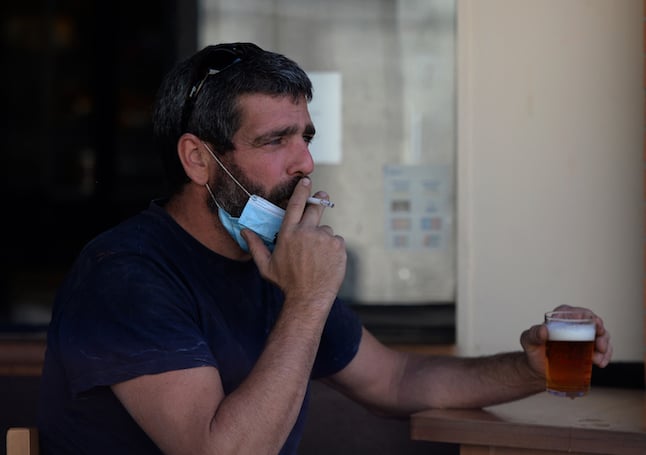Le Matin reports on internal documents of the company, headquartered in Lausanne, showing that a former chairman of the University of Lausanne (UNIL) was used in the 1990s to show tobacco in a favorable light.
The former chairman was an “eminent professor of psychology” covertly used by Philip Morris even as the university announced that it was cutting relations with the tobacco industry for ethical reasons, the newspaper says.
Several days after the university announced the policy in the summer of 1992, the pyschology professor signed a letter agreeing to conduct three years of “social engineering” research into the “dynamics of tolerant behaviour” and related issues.
The budget for the research was 377,900 francs, according to the letter cited by Le Matin.
Although the letter does not mention Philip Morris, another company document refers to a plan to exploit the “social engineering” research by the professor.
A 1993-1995 plan for the tobacco giant calls on the company to “organise, through third parties (e.g. Institute of Psychology at Lausanne University)” a national or international symposium on such themes as “tolerance, freedom of speech, scientific research and communication, the nanny state, health and lifestyle engineering”.
The research into tolerance meshed with a theme dear to cigarette companies in the 1990s, Le Matin reports.
Philip Morris believed that such research, provided it reached the right conclusions, was crucial to support arguments in favour of smoking, according to the newspaper.
It reports that the company’s head of science and technology recommended that the Lausanne professor regularly inform Philip Morris of his progress so the company could guide him in his work.
In a document dating from June 1993, the company official noted that the professor was cooperating in a “perfectly open” way.
In fact, the professor turned out to be a spokesman for ARISE, a Swiss group financed by the tobacco industry.
Purporting to have a scientific base, the group promoted arguments in favour of tobacco, defending smoking as one of life’s pleasures, much like chocolate, tea or coffee.
Le Matin says the university professor had a six-year relationship with Philip Morris.
Contacted by Le Matin, the academic, now an honorary professor at UNIL, says he did nothing to be ashamed of.
He maintains that he remained perfectly independent of the company in his research.
The university’s administration believes the professor was “manipulated”.
Phiippe Moreillon, UNIL’s vice-rector, told Le Matin that today a researcher at the university would be severely punished if he or she collaborated with a tobacco company.
Such research has been formally banned at the university since 2005.




 Please whitelist us to continue reading.
Please whitelist us to continue reading.
Member comments